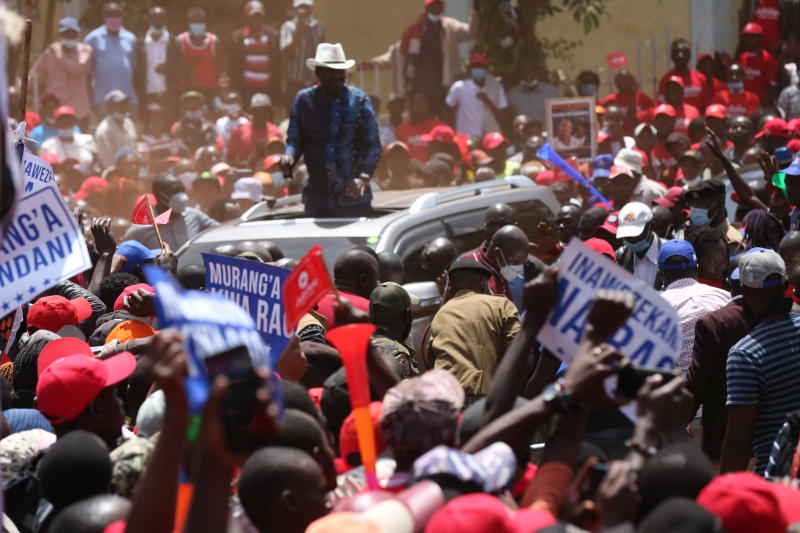×
The Standard e-Paper
Join Thousands Daily

Raila Odinga at Ihura Stadium in Murang'a during the Azimio La Umoja Public Rally. [Kibata Kihu, Standard]
Two weeks ago, the Dean, Kabarak Law School, Prof John Ambani Osogo apologised to the members of the University Community for titling an introductory speech during an inaugural Lecture by Prof Justice Willy Mutunga at the school.